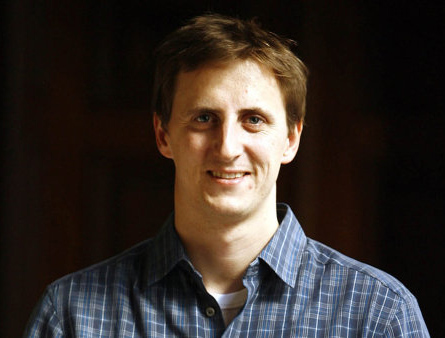The following article was written in Czech by Kateřina Surmanová for Hospodářské Noviny on September 29th. The original article can be found here.
CERGE-EI maintains that it ranks among the best economic institutes in the world. Recently CERGE-EI cooperated with Oxford University in organizing an academic conference focused on the connection between psychology and economics. The prestigious English university specifically requested CERGE-EI’s cooperation in organizing and participating in the conference, and CERGE-EI researchers were given the job of choosing who to invite.
“It’s quite common for individuals to attend academic conferences abroad. But for one institution to invite an entire other institution is quite an honor,” said Filip Matejka of CERGE-EI, who has been specializing in the special topic of the conference (the theory known as ‘Rational Inattention’) since his time as a PhD student at Princeton University.

CERGE-EI already earned a good name for itself two years ago when it organized the first annual ‘Rational Inattention’ conference in Prague. Twenty top economists took part in that conference, including Christopher Sims, who is the 2011 winner of the Nobel Prize in Economic Sciences and a long-time research collaborator with Matejka. “We have managed to convince our international colleagues that we know how to organize a top-level conference and that we have research expertise in the field,” mentioned Matejka.
The theory of Rational Inattention has become an increasingly popular research area in the past ten years. The inter-disciplinary theory relies on knowledge and insights from the field of psychology and brings them into economic models.
To put it simply: people cannot process all the information available to them, and thus they are forced to choose only the information which they deem to be the most important for them. The theory tries to understand and describe how people unconsciously make mistakes as a result of their rational inattention behavior, and to determine what kind of mistakes are the most common in various situations.
“The idea originally came about as a way of providing new models for central banks which could more precisely reflect reality,” explained Matejka.
At CERGE-EI, Matejka and his colleagues are applying the theory to the topic of discrimination in the labor market. They are following up on a research of their American colleagues. Their experiment involved sending out thousands of nearly-identical CVs to various firms in the US—the only thing the researchers changed was the name of the job-seeker. In some cases the name seemed to imply that the applicant was white, in other cases that the applicant was African American. The results of this experiment were quite dramatic: applicants with a white-sounding name were invited to nearly twice as many interviews as applicants with an African American name.
“This type of experiment even applied to selecting musicians to the New York Philharmonic. They figured out that the orchestra was filled with men, even though music schools are predominantly filled with women. They set up an experiment where the selection committee for the orchestra evaluated auditions with their backs to the musicians. And suddenly the number of women accepted by the committee shot up dramatically,” explained Matejka, describing ways in which his theory has real-life applications.
Matejka has had great success publishing his ‘Rational Inattention’ research in one of the five most prestigious academic journals. Matejka and his co-researchers recently received news that most probably another one of their articles will be published.
When considering their publication success in the five most important economic journals, CERGE-EI researchers appear to be among the best in Europe. In the past two years they have had five articles published in these journals, and three more articles should be published soon. “It’s a good indication of how CERGE-EI is growing. By comparison, if an American researcher gets just one of his articles published in these journals, he can already expect to get tenure nearly anywhere. And when he has three, well then he can even expect tenure at Harvard,” says Matejka.
Matejka himself nearly left the field of economic research. Before he returned to Czech Republic in 2010, he founded his own consultancy firm. He apparently had the feeling that he could not earn a good living working as an economic scholar in the Czech Republic. But in the end he took a position at CERGE-EI and returned again to the field.
“I hold a somewhat more distinctive mark because I work together with a Nobel Prize winner, but there are other young economists here who also rank among the best in Europe,” he added. A few of them also presented their research at the conference in Oxford, including Michal Bauer (CERGE-EI), Jakub Steiner (CERGE-EI), and Julie Chytilova (Faculty of Social Science, Charles University).
